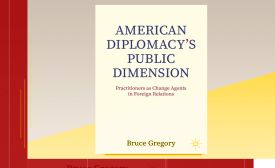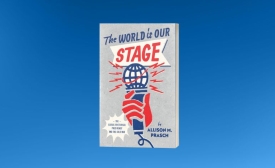american history

The author's recent book, American Diplomacy’s Public Dimension: Practitioners as Change Agents in Foreign Relations, traces the evolution of American public diplomacy from colonial times to the present.

Prasch's book on the rhetorical presidency and the Cold War is enjoyable and fresh in its approach, writes Nick Cull.
Before, if you wanted to see — for example — Alexander Hamilton's letters to his wife, you had to travel to the Library of Congress in Washington, D.C., and even then, you'd have to view them on microfilm. Now, Julie Miller, the library's curator of early American manuscripts, says the collection has been digitized. "The web site is meant to open these up to a much broader public," and given the increased interest in Hamilton, the timing is no accident.
Benjamin Franklin wrote and published this hoax "Supplement to the Boston Independent Chronicle" in 1782, hoping that it would end up in the hands of British newspaper editors, who might reprint articles from its pages. Through these manufactured tales of atrocities perpetrated by Native Americans at the behest of the British, Franklin looked to influence the mindset of the British public as he worked on negotiating the peace treaty that would formally end the conflict between Britain and the new United States.
The site opens the cyber-doors of the Department of State and is designed to reach untapped audiences nationally; it is a primer for groups seeking to learn more about diplomacy and the U.S. Department of State.







